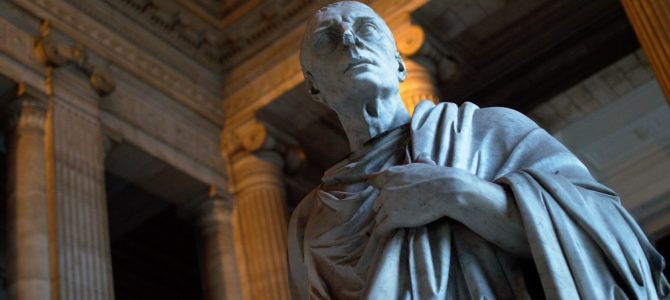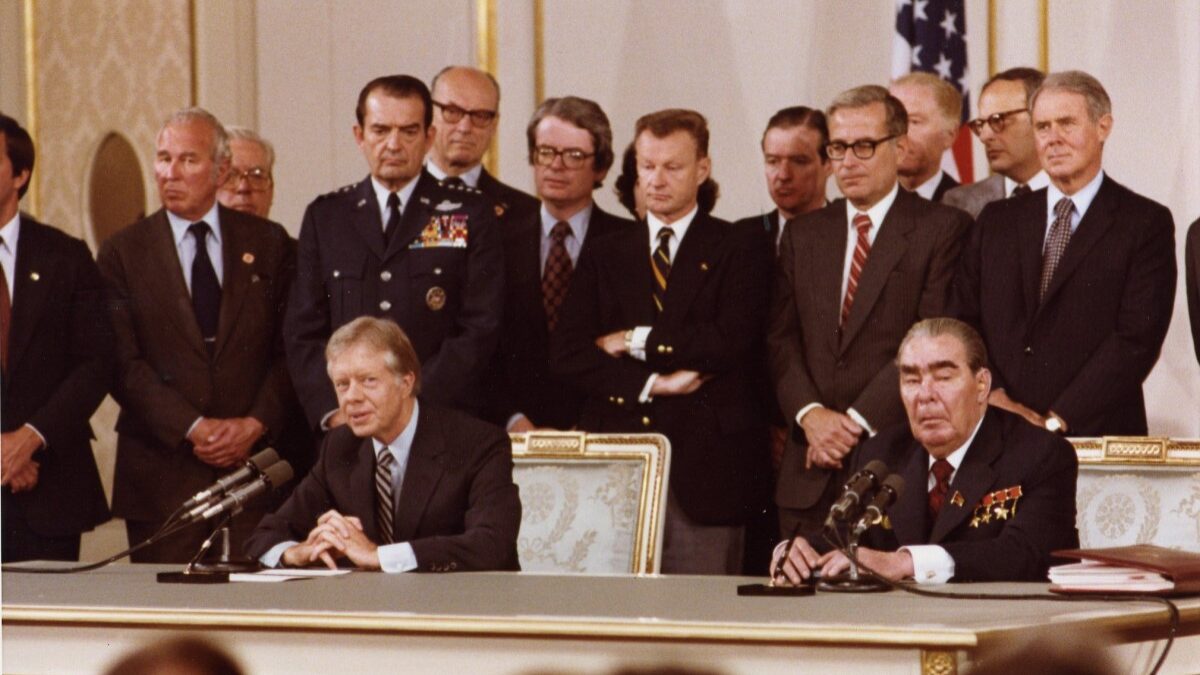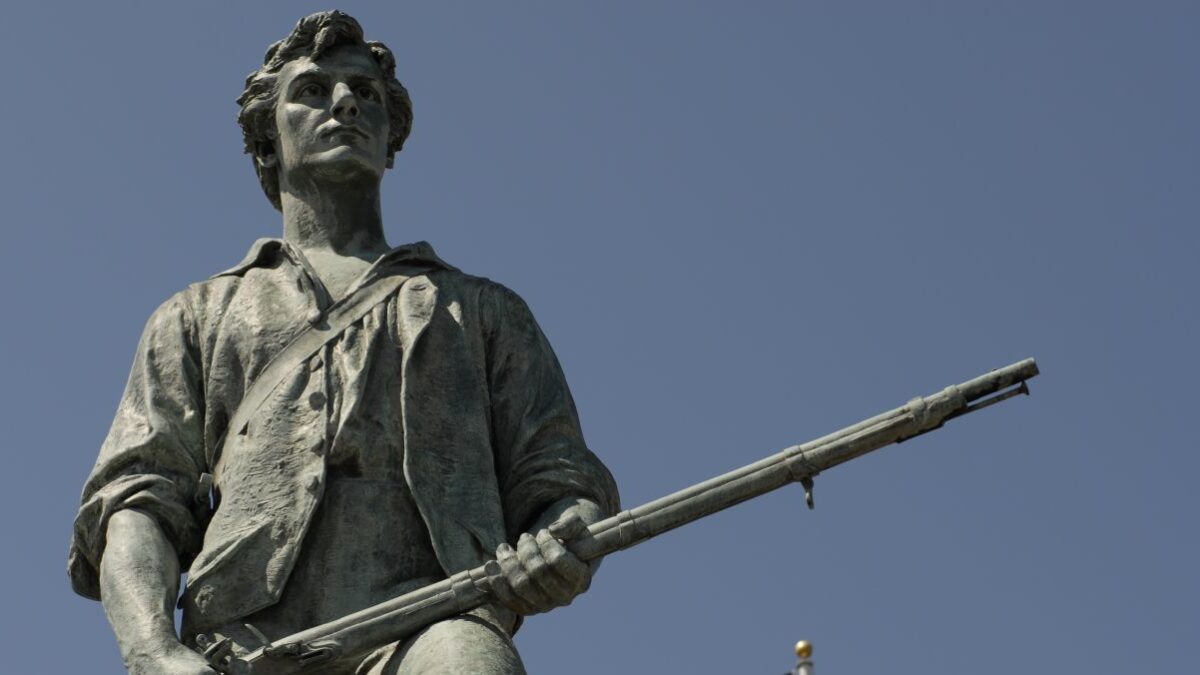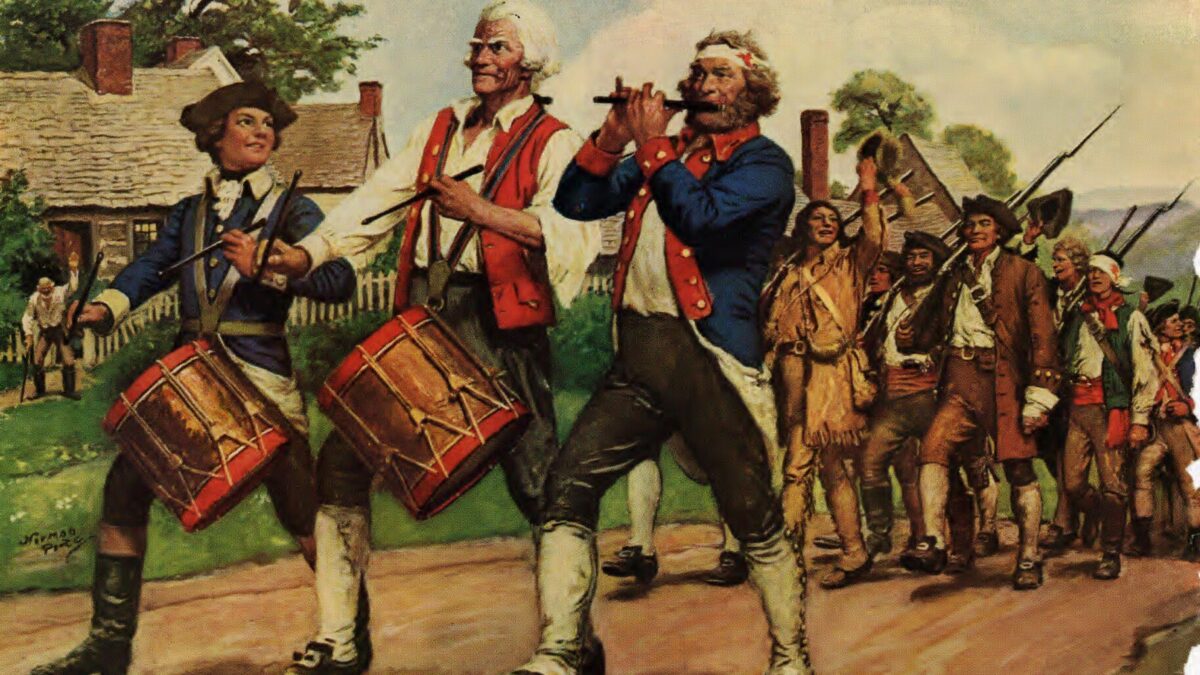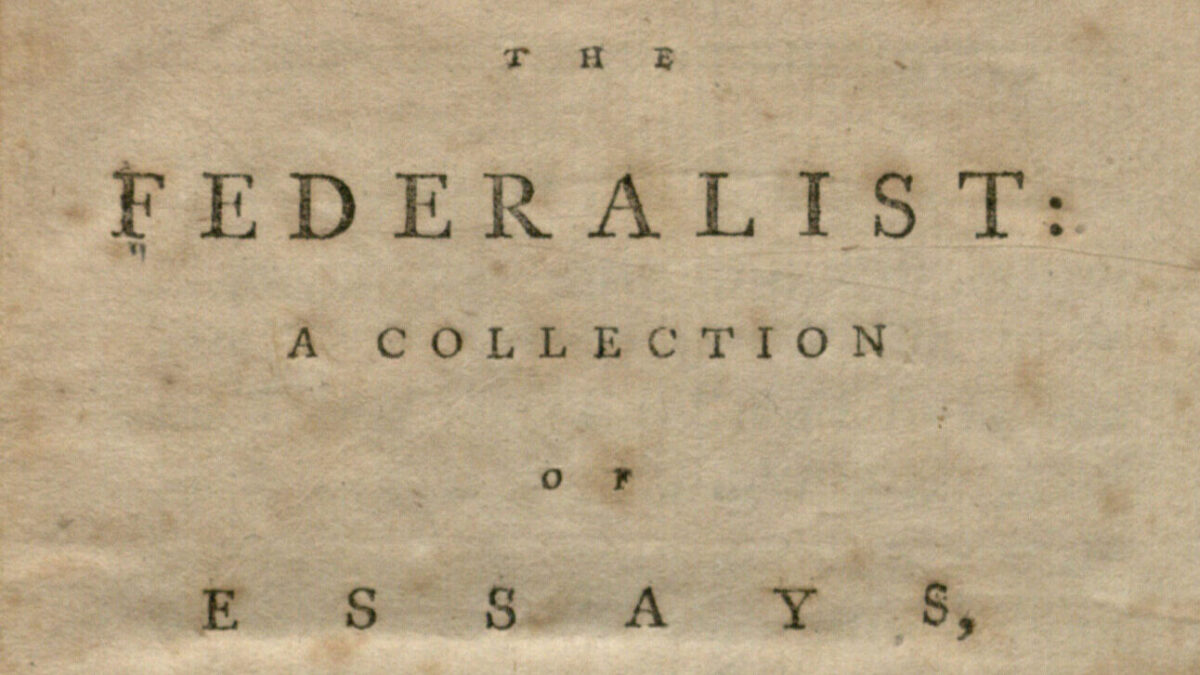Comparing the “Decline and Fall of the Roman Empire” with the rise and now decline of the British and now American empires has been something of an intellectual parlor game for now more than 200 years. But it’s fun to play because everybody has a slightly different collection of information and analysis to offer, and because people like predictions and patterns.
Consider the parallel “ages of man” dispute that has been going on for several thousand years — the ancient Greek poets Hesiod and Ovid offered theirs (they counted five and four, respectively), so did Shakespeare (he counted seven), and today we have generation-based theories such as William Strauss and Neil Howe’s “Fourth Turning.”
I don’t think any of us knows whether the United States has already passed peak awesome, and while my mind says Charles Murray is right that we’ve probably lost our country, my heart won’t take that answer. I listened to the latest in our Hillsdale Western Heritage 101 lectures, on “The Rise and Fall of the Roman Republic” with Dr. Ken Calvert, with all this in mind. Of course, even studying this for years will not generate a crystal ball, but the lecture did generate some data points to fuel another dinner table discussion.
1. Virtues Key to Success
Calvert says the Romans were a “very religious,” pious people who believed in honoring their ancestors and tradition. They also cherished courage, honesty, and duty, and their convictions, he says, were key to their rise as a culture. These virtues sound particularly like George Washington, whom contemporaries regularly compared to ancient Roman leaders, and today remains the American ideal of a leader.
2. Foundation In Neighborhood-Level Self-Governance
Early Roman “government was local, personal, interactive,” Calvert says. The famed Alexis de Tocqueville found the same famously true of Americans, noting that whenever there was a local problem Americans got together and formed a club to take care of it.
As Rome expanded its power on the Italian peninsula and beyond, its military success began to threaten its culture by weakening that personal interaction between citizens that had helped make it great.
“How does a republic founded on local rule, on popular rule, on knowing one another in the street, now become an empire?” Calvert asks. “This is the greatest challenge for Rome. It is being weakened, and indeed is going to be destroyed, by its own success.”
3. Cronyism, a.k.a. ‘Patronage’
Intrinsic to Roman society were “client-patron relationships,” in which a wealthy and powerful men did favors to less wealthy and powerful men in exchange for their loyalty, votes, and service. You can think of it as somewhat like the Italian mafia — or like the U.S. Congress.
“We call that bribes and corruption but among Romans this was the way business was done,” Calvert says. Not just among the Romans, friend!
4. A Volunteer Army
Initially Romans fought not because they were mercenaries, but to defend “home and hearth,” Calvert says. That gradually changed as the Roman Empire grew and needed increasing numbers of soldiers to maintain control. This eventually led to the military becoming a political player through a constituency that demanded more favors and began throwing support behind their generals as political leaders.
5. Trouble from Warfare Between Elites and Commoners
Initially, the Roman people overthrew kings to establish Senate, replacing hereditary tyrannical rule with rule of limited terms under law. The patricians (aristocracy) and plebians (common people) balanced power in ways that generally satisfied both. As they gained wealth through trade, however, plebians demanded more political power.
The rich fought back by taking public land for their own use and using their wealth and influence for themselves, more broadly, rather than accepting checks on their behavior for the common good. This displaced soldiers, who were required to own land to fight and vote, but couldn’t afford to maintain that land. Disputes over related matters led to a series of rebellions and then consolidated political power.
Roman politicians’ refusal to handle such political problems ultimately turned power over to military, which then used its power to undermine political operations by turning generals into politicians. While the United States is not as close to becoming a military dictatorship, the trend of our politicians refusing to do their jobs by resolving questions such as government debt, runaway entitlements, immigration, and more similarly abdicates their responsibility, this time instead to an unelected bureacracy. The entire bureaucracy operates this way, but the closest contemporary analog is revelations of our intelligence agencies’ willingness to use police state power lawlessly. It’s a faint, but eerie, echo of Rome’s military and civilian government power struggles.
